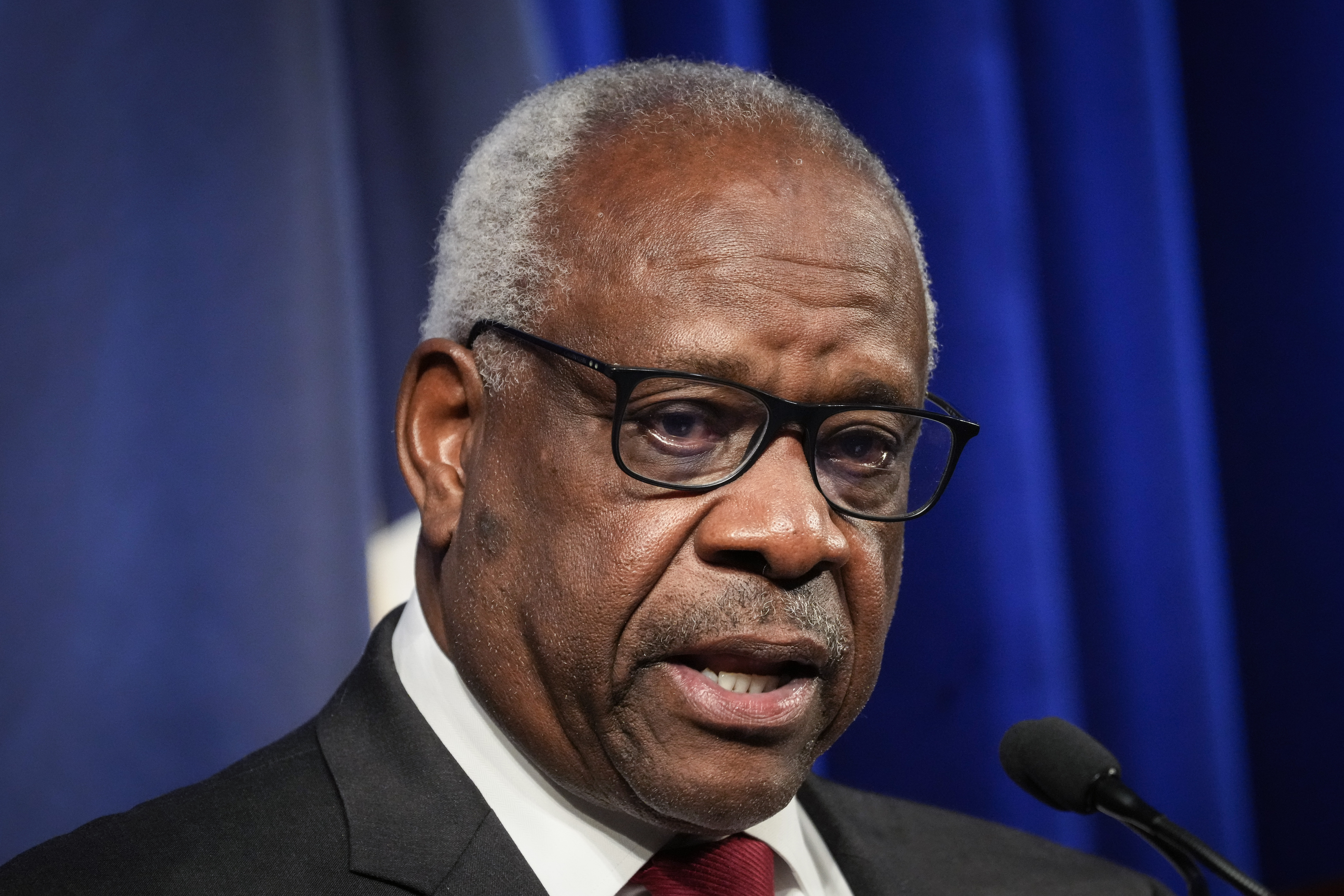Clarence Thomas cites claim that Covid vaccines are ‘developed using cell lines derived from aborted children’

None of the Covid-19 vaccines in the United States contain the cells of aborted fetuses. Cells obtained from elective abortions decades ago were used in research during the development of the Covid vaccine, a practice that is common in vaccine research.
A group of doctors, nurses and other health care workers brought the case, suing in the U.S. District Court for the Northern District of New York in an objection to the state’s vaccine mandate on religious grounds. The district court issued a preliminary injunction, but the 2nd U.S. Circuit Court of Appeals reversed it and the Supreme Court ultimately declined to hear the challenge on Thursday.
The court instead left in place the lower court ruling rejecting petitioners’ claim that New York’s mandate violates the First Amendment right against religious discrimination. All 16 health care workers were either fired, resigned, lost hospital admitting privileges or decided to receive the vaccine.
Democrats called attention to Thomas’ comments after a new conservative Supreme Court supermajority delivered several groundbreaking decisions this term, including the overturning of Roe v. Wade. But some Thomas defenders argued that he was simply reciting the allegations made by those refusing to get the vaccine on religious grounds.
Conservative Justices Samuel Alito and Neil Gorsuch joined Thomas in his dissenting opinion.
Thomas argues in the opinion that the court should have granted a petition to open for full deliberation the question of whether a mandate like New York’s can ever be neutral or generally applicable if it doesn’t exempt religious conduct but does permit secular conduct — such as medical exemptions.
The state allows a narrow medical exemption for those who are highly allergic to the Covid-19 vaccine.
“Because I would address this issue now in the ordinary course, before the next crisis forces us again to decide complex legal issues in an emergency posture, I respectfully dissent,” Thomas writes.


